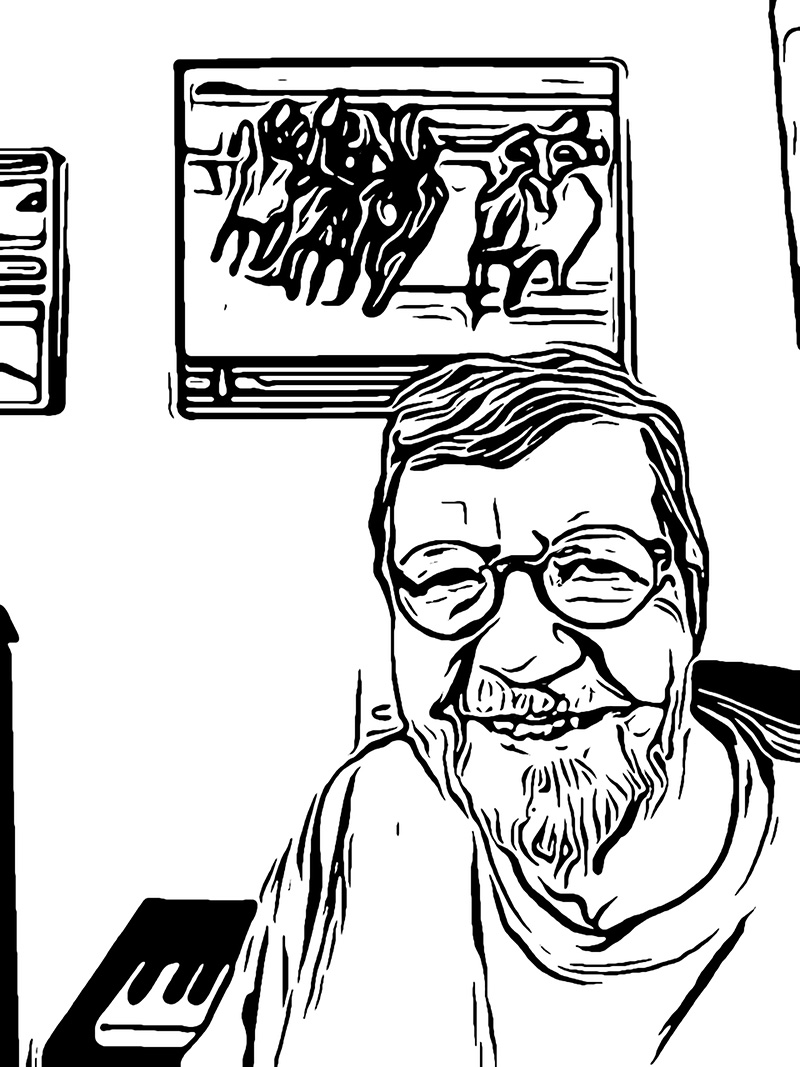Composer as Horseplayer

- If you are interested in how I play the horses, read Section A.
- If you are interested in why I play the horses, but not how, read Section B.
- If you are interested in both how and why I play the horses, read both sections.
A.
Horse Playing Strategy
I have been a thoroughbred horseplayer since 1977. One thing I like about betting on thoroughbred racing is that I am always betting against most of the other players. As opposed to casino gaming, where the odds are set by the casino and are always against the player, at the racetrack the odds are set by the players themselves—the “parimutuel” system. In addition to indicating the amount one will win, the odds represent each horse’s chance of winning according to the betting public. For example, odds of 6-5 mean that the public thinks the horse has a 45.45% of winning; odds of 2-1 mean the public thinks the horse has a 33.33% chance of winning. Odds of 2-1 also mean that two-thirds of those playing that race prefer to bet on other horses.
My goal in playing the horses is not necessarily to pick a lot of winners; it is to make money. I first eliminate the horses that I think have very little chance of winning. The remaining horses are all contenders. I do not necessarily bet on the contender that I think has the best chance of winning. I bet on a contender whose odds are higher than I think represent the horse’s true chance of winning, regardless of whether the horse is my top selection. For example, if I think my top selection has a 33.33% chance of winning the race, or odds of 2-1, I will wager only if the betting public makes the horse 3-1 or higher. If I am correct, my selection should win about one in three such races. If I bet the minimum $2, I will have wagered a total of $6 ($2 on each race), but my one win will pay at least $8. At higher odds, my winning percentage can be lower, but I will still show a profit.
For an extreme example, in the fifth race on August 3, 2024 at Del Mar, there was a horse called Top Harbor that I thought should be about 6-1, representing about a 14% chance of winning. The morning line was 12-1, representing about a 7% chance of winning. At post time of the race, the public was divided among four other horses that went off much lower odds. My top horse was the favorite at 5-2, about a 29% chance of winning. I thought this was a fair estimate of the horse’s chance of winning, so I could not bet on it. I wagered on Top Harbor, my fifth choice. It was sent off at an unbelievable 42-1, more than 7 times what I thought were its fair odds. Top Harbor won, paying $87.20 for each $2 wagered! Of course, such situations do not occur that frequently. Horses do not win very often at 42-1. However, I need win only 3% of the time to show a profit in these situations.
Enduring a losing streak requires emotional strength, especially when a ‘non-contender” wins, when one loses several close photo finishes or one’s carefully chosen horse wins but is disqualified for a jockey infraction, or simply finishes dead last. So, even though I lose more bets than I win, if I stick to my rule of playing only when the odds are in my favor, I will end up with a profit over the long haul.
B.
Composition and Playing the Horses
In composition, one sometimes writes a lovely and effective passage, but it does not work in the piece one is writing. One must set the passage aside and maybe use it in another piece, or maybe never find a spot for it. This is similar to liking a horse that is a good bet at 6-1, but the public makes 3-1. In this case, one should not make that wager and wait for a more advantageous situation. It can be very difficult to accept that one has made the correct decision when that horse wins at 3-1. Also, having one’s best work rejected for performance is emotionally difficult. Dealing with rejection is part of being a composer; dealing with losing bets is part of playing the horses.
I am often asked why I “gamble” on horses. When one plays the stock market, it is called “investing;” when one plays the horses, it is called “gambling.” Therefore, I am simply investing in the outcome of selected equine events. In both cases, one must do appropriate research and then act intelligently, and hope for a bit of luck. Besides, when one bets on the stock market, one must often wait years to see if one has won. When one invests in an equine event, one knows the results within minutes.
To me, the mental gymnastics, psychological resilience and emotional discipline required to be a winning horseplayer are comparable to those needed to be a composer. I think the similarity of those requirements is what attracts me to the game. Perhaps that is why I am a composer who is also a horseplayer, and vice versa.